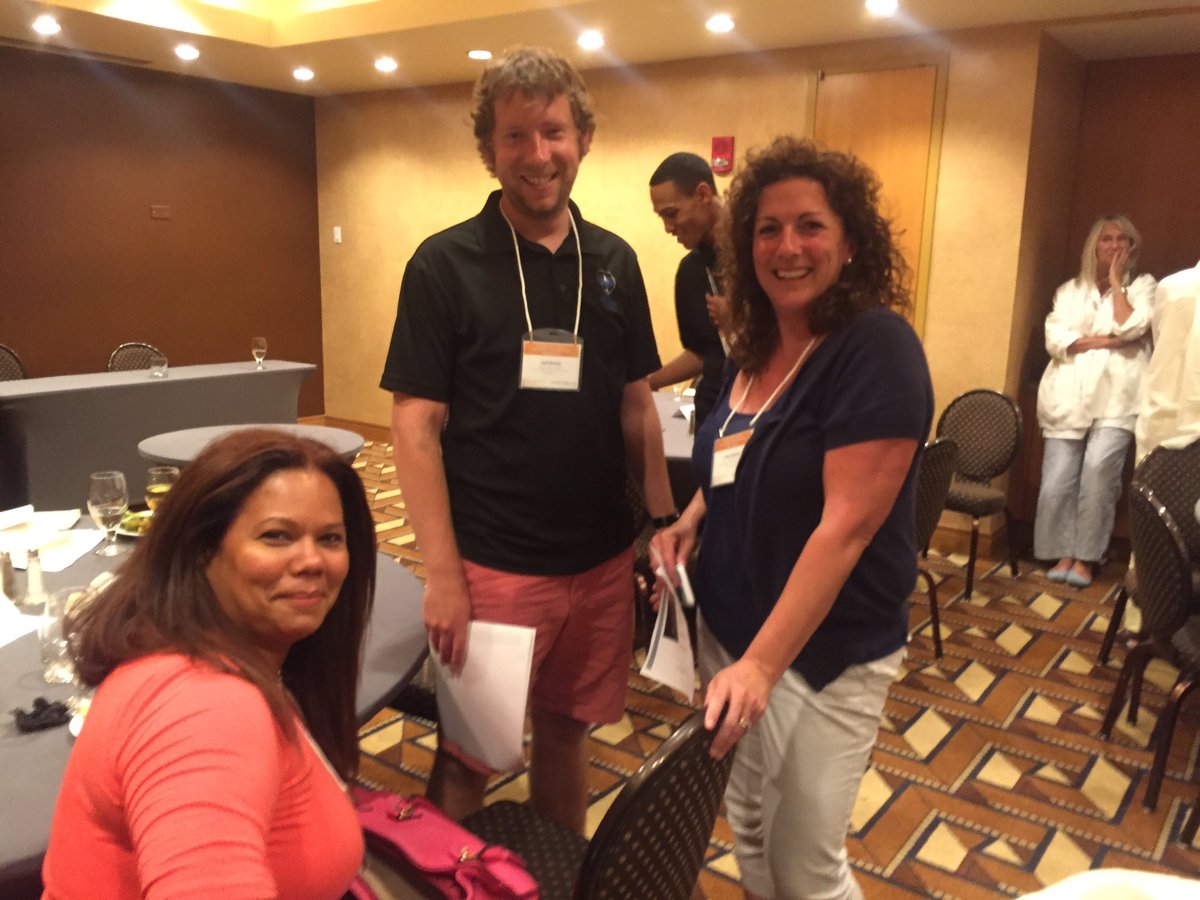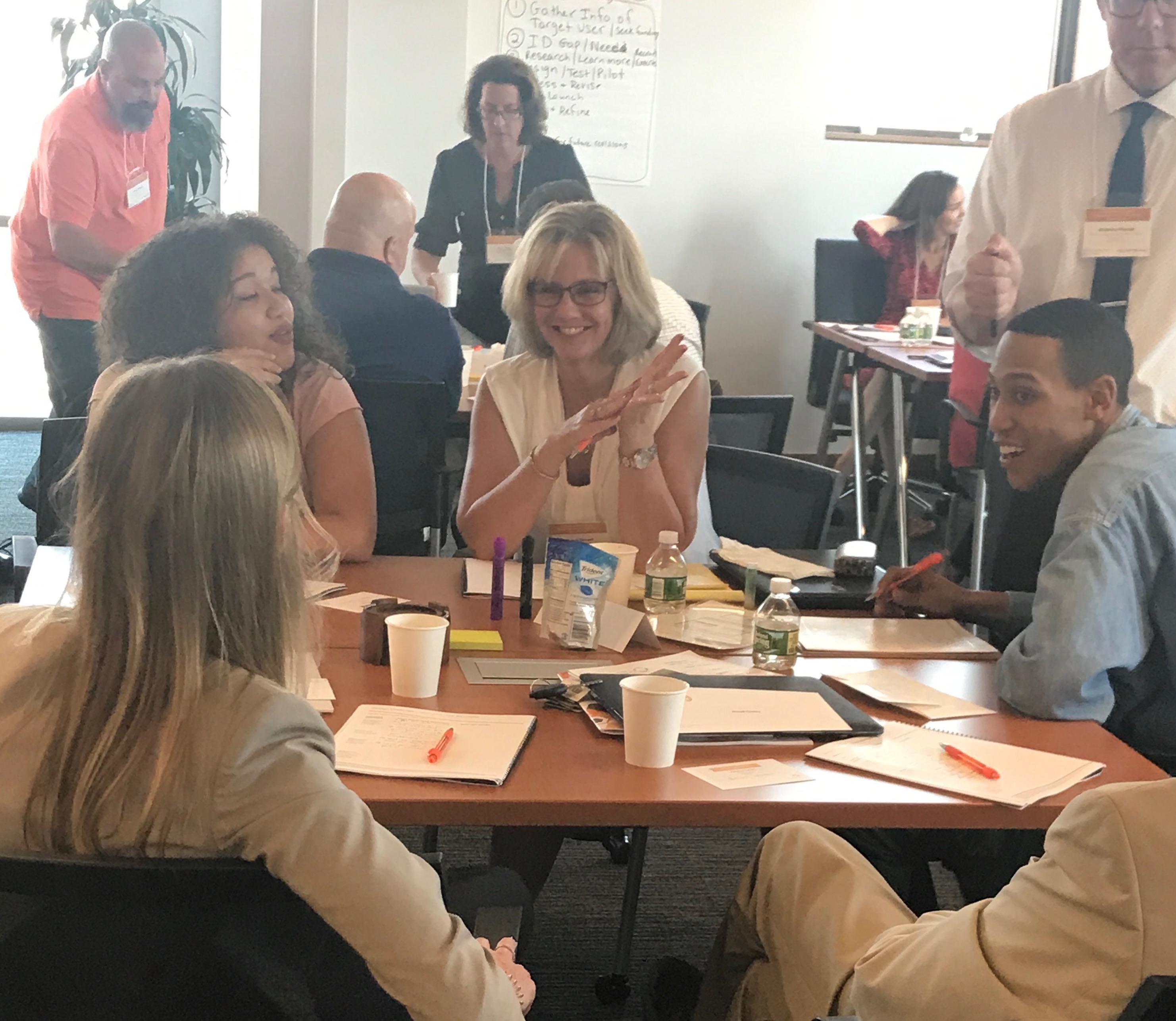We launched our landmark design guide last year, to outline a process for intentional school design that we developed through our work with partners. The guide is organized into three broad phases, the first of which is Understand where design teams develop a deep, foundational understanding of the students and families that the new model will serve. This foundational understanding informs the Design phase where teams create the key elements of the school model that they then bring to life in the Build phase by thoughtfully planning for launch and iteration.
This summer, nine Engage New England (ENE) partners embarked on a year-long design process, supported by Springpoint. Teams dove into the Understand phase with enthusiasm, engaging with and collecting data from students and the community. As ENE partners look ahead to the Design phase, they have reflected on lessons learned during the Understand phase that can lead the way. We’ve captured reflections here from some partners in an effort to drive deeper network collaboration and share learnings.
Early learnings in the Understand phase of the design process
The team at Noble High School in North Berwick, Maine revised their research questions based on answers they heard in focus groups. Though they got valuable information from students vicariously, they hoped that adjusting their approach would allow qualitative data to be heard directly from students, which could help unearth students’ most pressing needs. To do this, the team has considered creating a credit-bearing course for students who are interested in working with the design team to co-design the school.
At Phoenix Charter Academy, focus groups uncovered a large range in the clarity that students’ have regarding their future paths. This has sparked the charter network of three schools in the Greater Boston area to think about how can they help student set goals. They also used these learnings to refine questions for a student survey that they distributed widely.

The Connecticut Regional Education Council (CREC) in Enfield, Connecticut conducted two student focus groups. Previous focus groups had low engagement, which underscored the need for stronger questions. The team was encouraged to hear that a priority for students is to have teachers who can build relationships with them and provide support. But students also talked about something the CREC team hadn’t heard before: the need for a brief pause during the school day. The current school model fills the day to the brim as a mechanism to engage students. However, students discussed the challenge of a back-to-back schedule that didn’t allow for time to reflect on school work or what is going on in their lives.
Steve Mango, who leads this work at Revere Public Schools in Massachusetts, reflected on his design team’s need for more planning and work time as a group. In response, they increased the frequency of their meeting times from every other week to at least once a week, and recognized the need for larger chunks of work time. They also saw the need to keep stakeholders apprised of the work and determined a process for how best to do this moving forward, including a recent “Tour of the Tour” where they shared learnings from last month’s NYC study tour.
Why do we reflect and iterate?
In our work supporting school designers, we emphasize the value of reflection points, encouraging teams to strategically pause, reflect, and iterate on their research process. For example, if a team knows they will have some data analyzed by a certain day, they can schedule a meeting for a day or two later to process it and plan how they’ll use it. A structured agenda will allow the team to best leverage their reflection point, giving everyone an opportunity to speak and assess the data holistically.
Reflections and learnings help design teams shift practice and evaluate the qualitative data they collect from stakeholders. It is crucial that design teams create intentional time and space to refine and iterate on their research process, before jumping into the Design and Build work ahead, a measure that helps keep the focus on student data and the lived realities of students.

Using reflection points: making adjustments into the research process
MAP Academy have used early learnings and reflections to refine their research process. The MAP team grounded all research activities in their mission to meet students where they are. They know that a great school design is for naught if it doesn’t ultimately work for the students that it is designed to serve. They surfaced some new and, at times, unexpected learnings in their research work. One of the most prevailing messages was that students feel like they have no voice in school and have struggled with traditional school experiences (e.g., can’t handle sitting in a seat, etc.). This has had tremendous implications on how they think about school design.
Chelsea Opportunity Academy also learned a lot in the research process. For example, in parent focus groups, the first question took 20 minutes to get through. Immediately, they knew changes were needed, like providing framing for the discussion (e.g., “please limit your answer to a few sentences”) and giving examples as thought starters. They also recognized the bias of speaking with parents who chose to come to the meeting. To hear from the most marginalized groups, the design team conducted outreach out to parents who are less engaged. Talking to these parents provided a broader understanding of students and families, including those who choose to leave the school.
At Domus Kids, the team reflected on how they have gotten a better understanding of their students from interviews as opposed to focus groups. For example, when asked about strengths and assets in the focus group setting, students talked only about school-related strengths. But in one-on-one interviews, the team found it easier to glean a sense of students’ personal interests and experiences. Another adjustment was in how they presented the idea of flexible schedules to parents. They heard some discomfort around this idea as the traditional thinking (i.e., students in school at set times) conveys a structure that is familiar and feels safe. This insight made clear the need to adjust how the design team messages flexible scheduling. Revere Public Schools heard a similar response so they created a multiple-choice question that let them outline options and get more useful data.
At CREC, one noteworthy realization was the importance of hearing from former students, particularly those who did not graduate. The CREC team scheduled focus groups in different locations with incentives but the participation rate remained low. The team adjusted and sent former students a survey instead to lay the groundwork for future focus group participation or interviews.
Initial stakeholder interviews conducted by Noble High School’s design team informed how they organized and executed on focus groups and surveys. The answers from focus groups helped identify new interviewees. This cyclical approach helped the team adjust and find even richer insights.
Discovering new possibilities & looking ahead
In addition to conducting research with stakeholders, design teams have been sharpening their research and design skills. One reading, Solving Problems with Design Thinking, deals with the need to be willing to “revisit the question we asked at the outset” to allow designers “to reframe the way [they] see the world and discover new possibilities.” This is critical to school design work, as building moments of reflection into the Understand phase can uncover unexpected research insights that lead to new possibilities for young people.
As ENE partners head into the Design phase of the work, they will use the data they’ve collected, the reflections that have surfaced, and the new insights they’ve gotten directly from their community to begin developing school designs that will accelerate success for students who are failed by the system. Teams will also continue to revisit their data and collect more of it in order to ensure that each school keeps a firm grasp on the needs, assets, and aspirations of their students as they create schools for them.